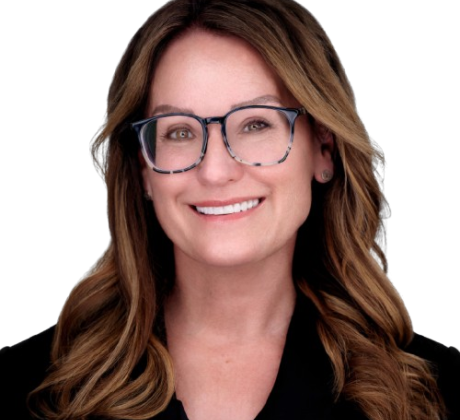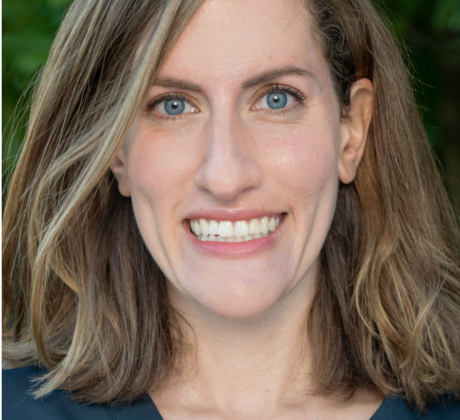Stephanie Ostroff is a speech-language pathologist and journalist. She enjoys blending knowledge from both fields to shine a light on innovators and changemakers in health care.


Michelle Dahlkemper, MBA, drives change in home health with a Graduate Certificate in Health Care Innovation.
At a crossroads in her career as a home health care leader, Michelle Dahlkemper knew she needed new tools to make a measurable impact.
After more than four years serving as President and CEO of Home Health at Penn Medicine Lancaster General Health, in 2021 Dahlkemper became President and CEO of the University of Rochester (UR) Medicine Home Care.
Shifting to a new role within a different organization demanded fresh skills and perspective. But the transition left limited time to dedicate to professional development.
Dahlkemper turned to the University of Pennsylvania’s online Graduate Certificate in Health Care Innovation to grow her knowledge at a pace and schedule compatible with her accelerating career.
While she felt confident in the financial and strategic management skills she had built as an MBA graduate in 2008, Dahlkemper wanted to dive deeper into health care–specific systems thinking and behavioral science. The Health Care Innovation certificate allowed her to handpick four online courses within Penn’s Department of Medical Ethics and Health Policy that matched her needs and interests.
Each time I took one of those courses, I was able to immediately apply what we were learning at work.
During her two years as a Graduate Certificate student, Dahlkemper leveraged insights from each course to lead changes at UR Medicine Home Care, including a revamped effort to recruit and retain nurses and the rollout of a new Electronic Medical Records (EMR) system.
“Each time I took one of those courses, I was able to immediately apply what we were learning at work,” she says. “I would come to a team meeting and say, ‘We’re working on this concept in Behavioral Economics. Let me tell you about it.’”
Improving Recruitment and Retention of Nurses
Dahlkemper found the flexible schedule and self-directed scope of her Graduate Certificate coursework aligned perfectly with the move to a new leadership role. She could block out time to work on asynchronous assignments when it was optimal for her, while benefiting from the virtual connections with classmates and faculty.
The six-week courses “are perfect for a working professional,” she says. “And the professors at Penn are amazing, plus engagement with the cohort is really valuable. You learn from them. They learn from you. They are all people with great careers and a wealth of knowledge.”
At UR Medicine Home Care, Dahlkemper drew from that knowledge and concepts from Kevin Volpp, MD, PhD’s Behavioral Economics and Decision Making course to bolster nurse recruitment and retention.
A deeper understanding of biases and incentives helped her shape a strategy driven by carefully structured sign-on bonuses and staggered payments, reframed as “retention awards.” Nurses signed an agreement to forfeit a portion of the bonus if they departed the organization before completing the predetermined contract.
“In Behavioral Economics we learned that people feel losses more strongly than equivalent gains,” says Dahlkemper “So this condition encouraged nurses to keep their commitment to avoid a perceived financial loss.”
A deeper understanding of biases and incentives helped her shape a strategy driven by carefully structured sign-on bonuses and staggered payments, reframed as “retention awards.”
A deeper understanding of biases and incentives helped her shape a strategy driven by carefully structured sign-on bonuses and staggered payments, reframed as “retention awards.” Nurses signed an agreement to forfeit a portion of the bonus if they departed the organization before completing the predetermined contract.
“In Behavioral Economics we learned that people feel losses more strongly than equivalent gains,” says Dahlkemper., “So this condition encouraged nurses to keep their commitment to avoid a perceived financial loss.”
The new approach led to greater recruitment and retention of nurses, with a reduction in drop-out rates during the onboarding and orientation cycle. In addition, more nurses opted to stay beyond their original two-year commitment.
Leading Change
While serving as President and CEO at UR Medicine Home Care, Dahlkemper also led the transition to a new EMR system.
This presented another opportunity to leverage behavioral science insights coupled with quality improvement knowledge from Driving Value and Ethics, taught by Lee Fleisher, MD, ML, a course that has been updated and integrated into Value and Quality in Health Care
Although staff initially expressed enthusiasm about the move to a new EMR, Dahlkemper anticipated resistance to change once the system went into effect. To set realistic expectations, she engaged in conversations with her team about the challenges of adjusting to a new system ahead of the transition. She also built in reduced productivity so that staff had the time they needed to familiarize themselves with the new EMR.
“My regular feedback was: this is new, it’s going to take time, there’s a huge learning curve for everybody,” she says. “But the more you practice, the more comfortable you get with the system, the more you learn.”
As a Graduate Certificate student, Dahlkemper felt equipped to connect with stakeholders across UR Medicine Home Care as they navigated the change together.
“We all know that we can get stuck in silos that limit efficiency and impede communication,” she says. “The Health Care Innovation coursework explores how to effectively collaborate across departments and organizations.”
In September 2024, Dahlkemper became President of a Pennsylvania-based franchise of Interim HealthCare, where she plans to pilot alternative models of home care that optimize nurse resources and harness new technologies. She is also pursuing an applied doctorate degree at University College London’s Global Business School for Health.

